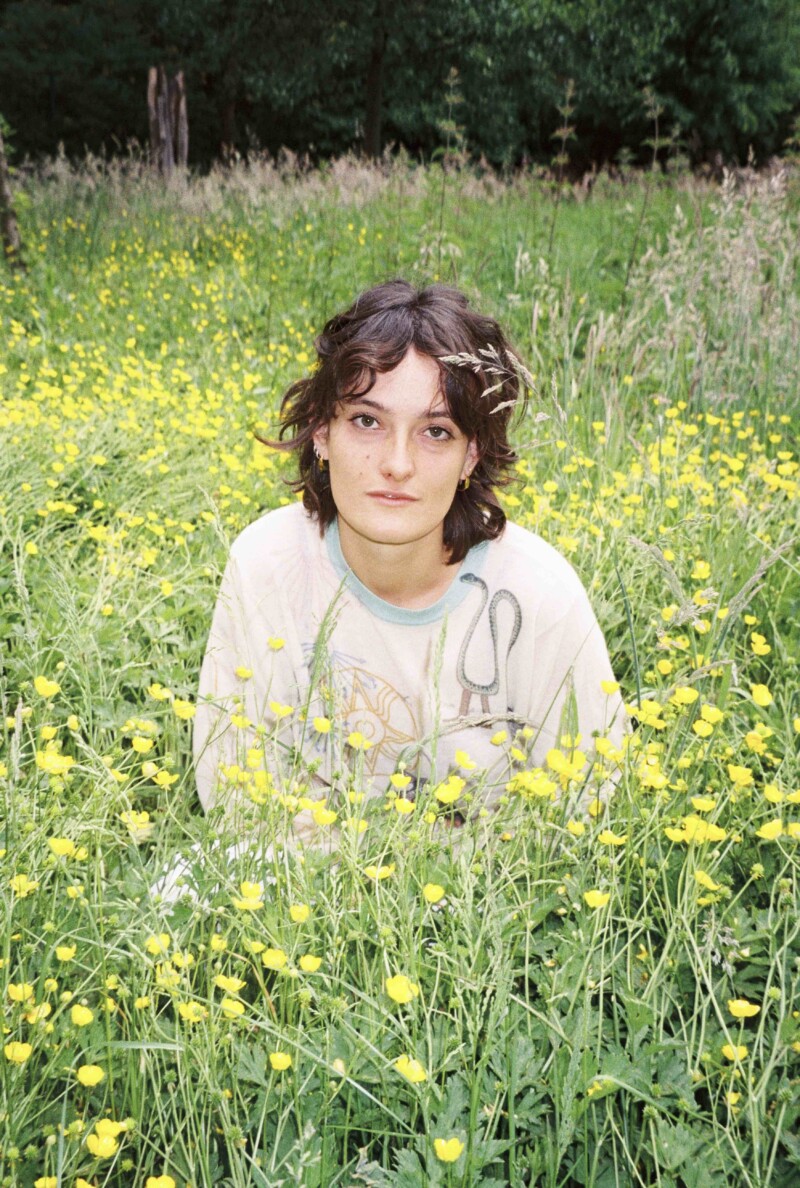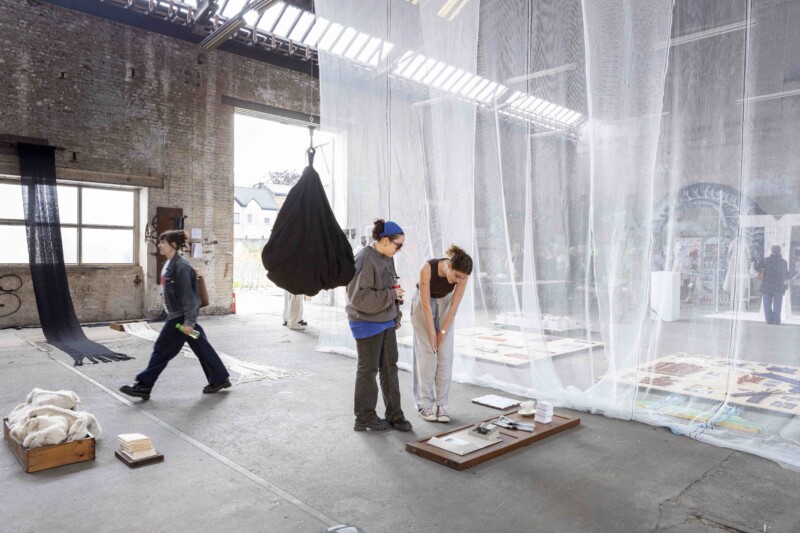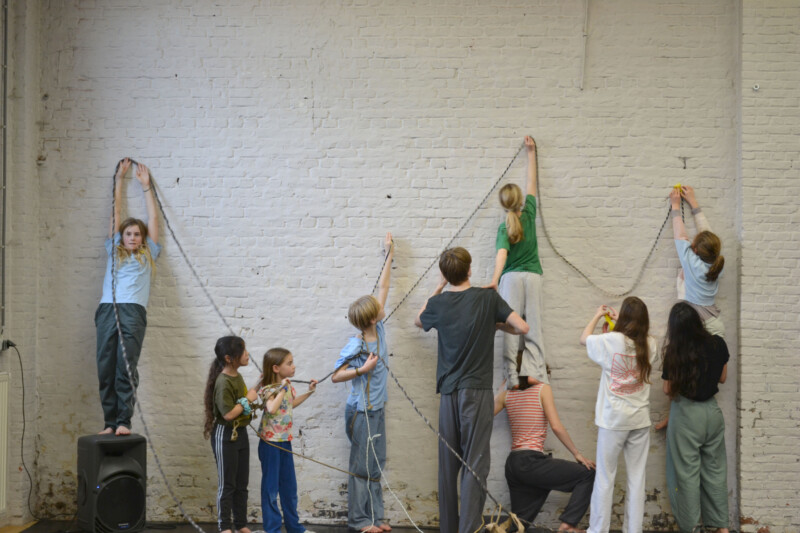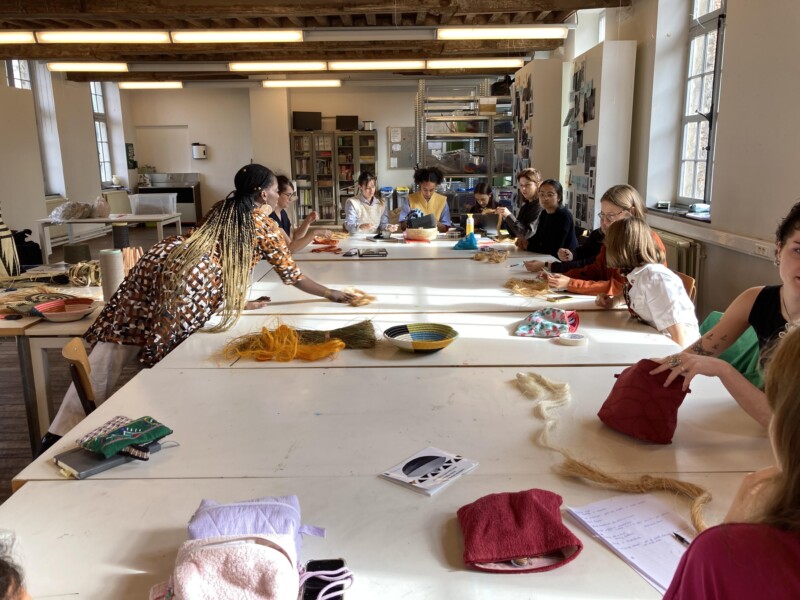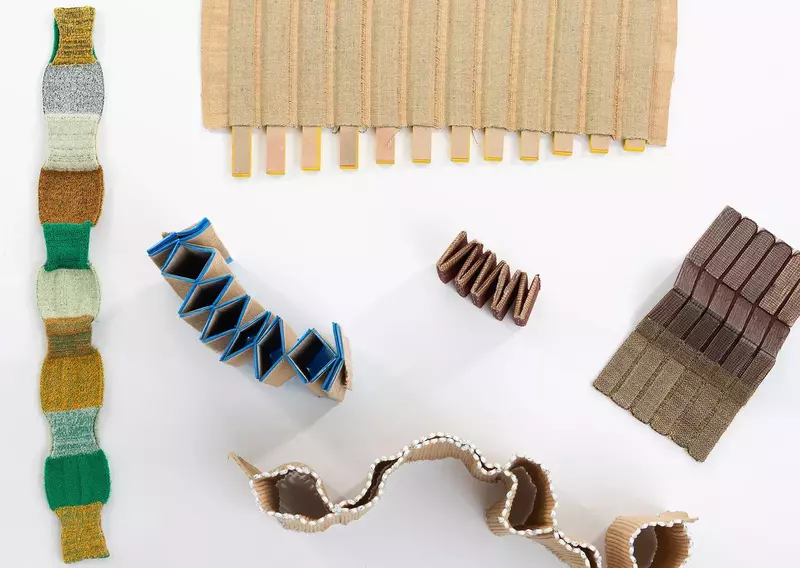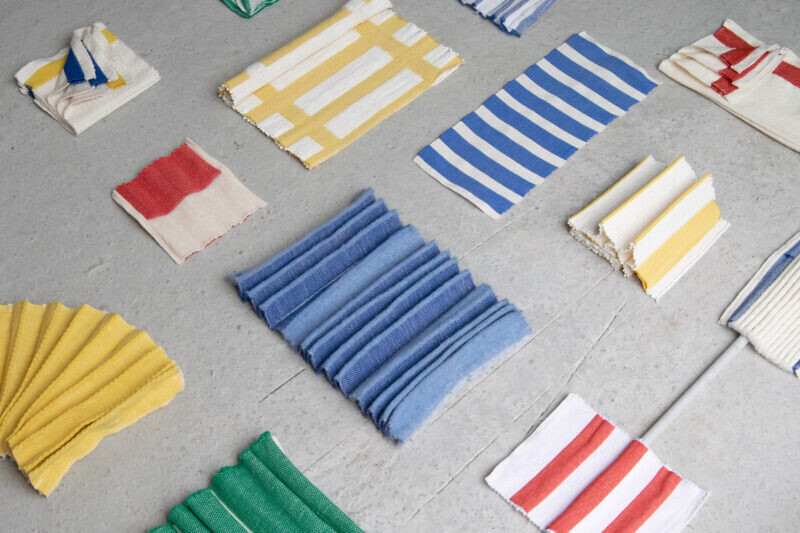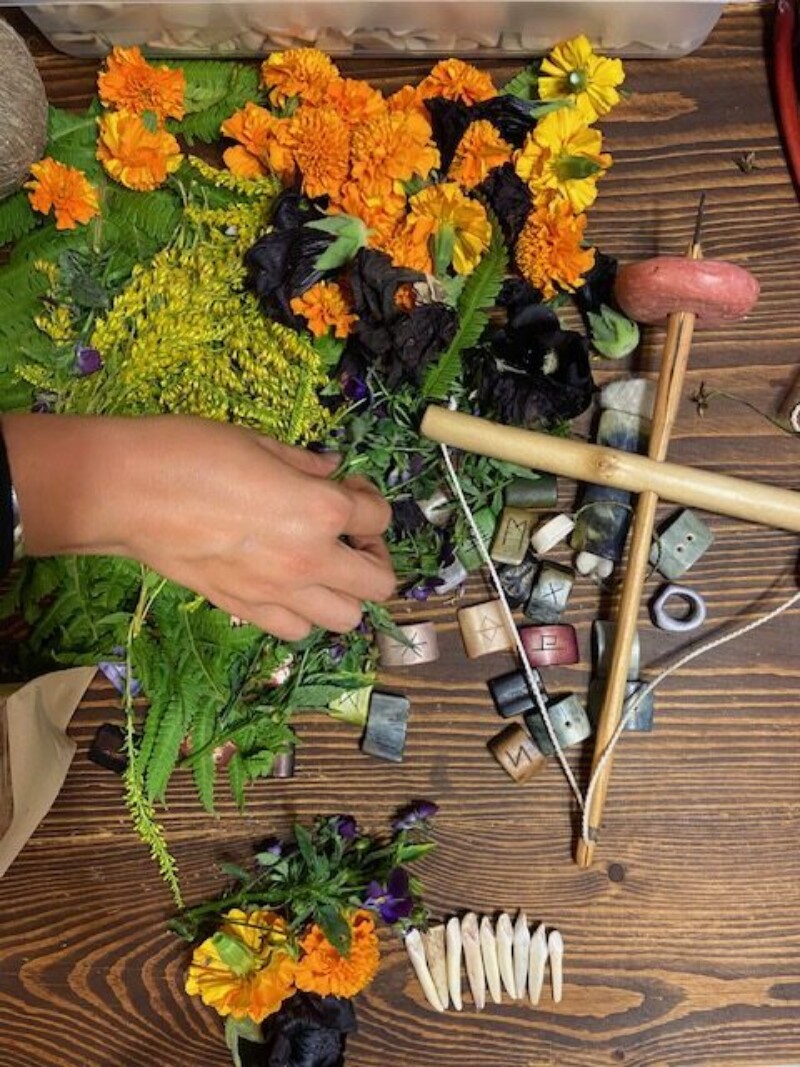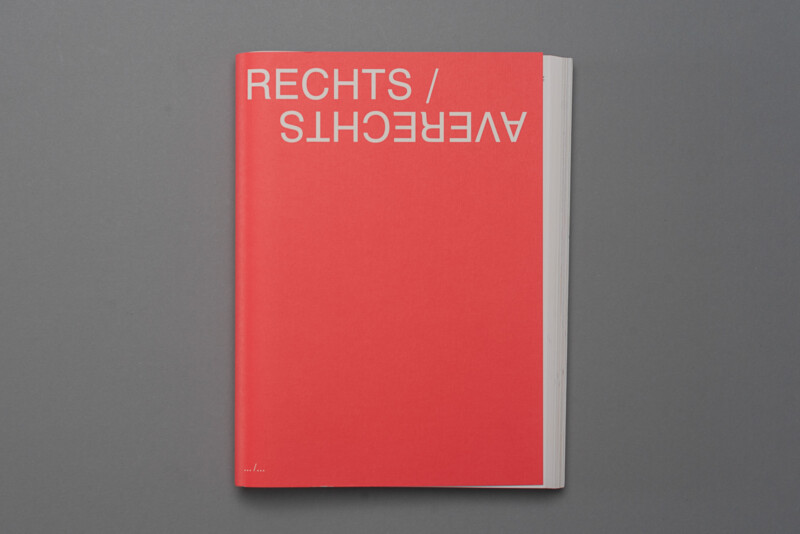textile design
graduating option
study path textile design
3+1 years
English master
read more about the programme
Textiles are ubiquitous and traverse different cultural contexts. It carries historical, symbolic and personal meaning. Textiles cover a field linked to visual arts and at the same time to everyday life with seemingly banal but fundamental human customs and needs.
Versatile
The distinctive versatility of the discipline gives the textile designer great freedom of movement and autonomy. This richness makes textile design a fascinating field in which you can establish your own emphases as a student. During the training, you are introduced to age-old crafts as well as contemporary industrial and digital processes. Numerous and varied initiations set the scene for your artistic path, in which you will soon determine your own orientation and learn to work in a self-directed way.
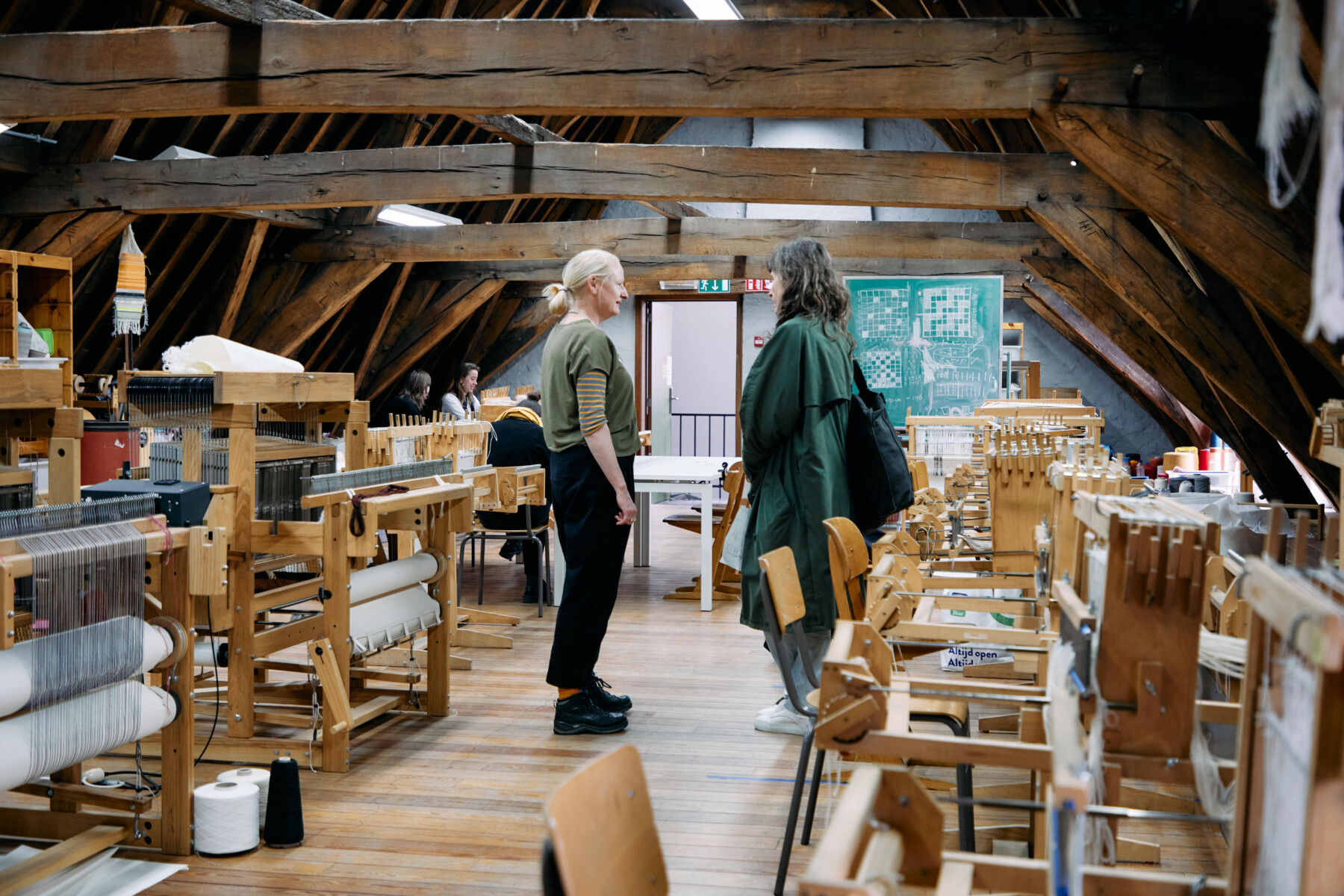
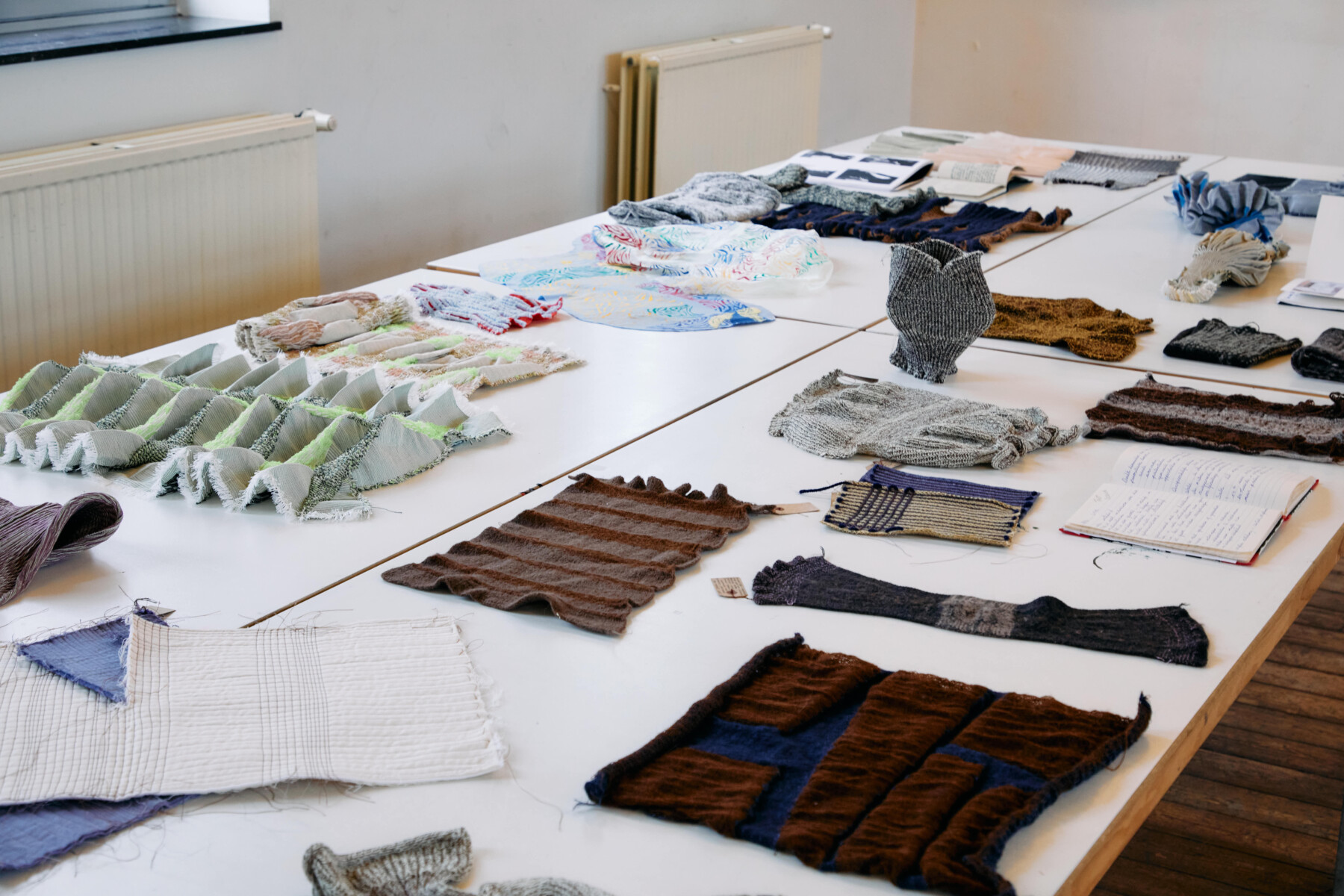
Craft and industry
Experimentation - both playful and analytical - is central to the development of your own visual language and methodology as a designer. Fundamental textile activities such as binding, knotting, twining, braiding and folding are explored while working. Understanding the properties of materials and specific techniques such as weaving, knitting, printing and embroidery are important for a textile designer and are given great weight in the programme. In addition to a multi-purpose workspace, we have several well-equipped workshops for this purpose, such as the weaving and knitting workshop with an industrial knitting machine, the printing workshop, the paint kitchen and the embroidery workshop. The recurring collaboration with the textile technology programme (HOGENT), acts as a laboratory for larger-scale projects and is a challenging place to test out work in an industrial setting.
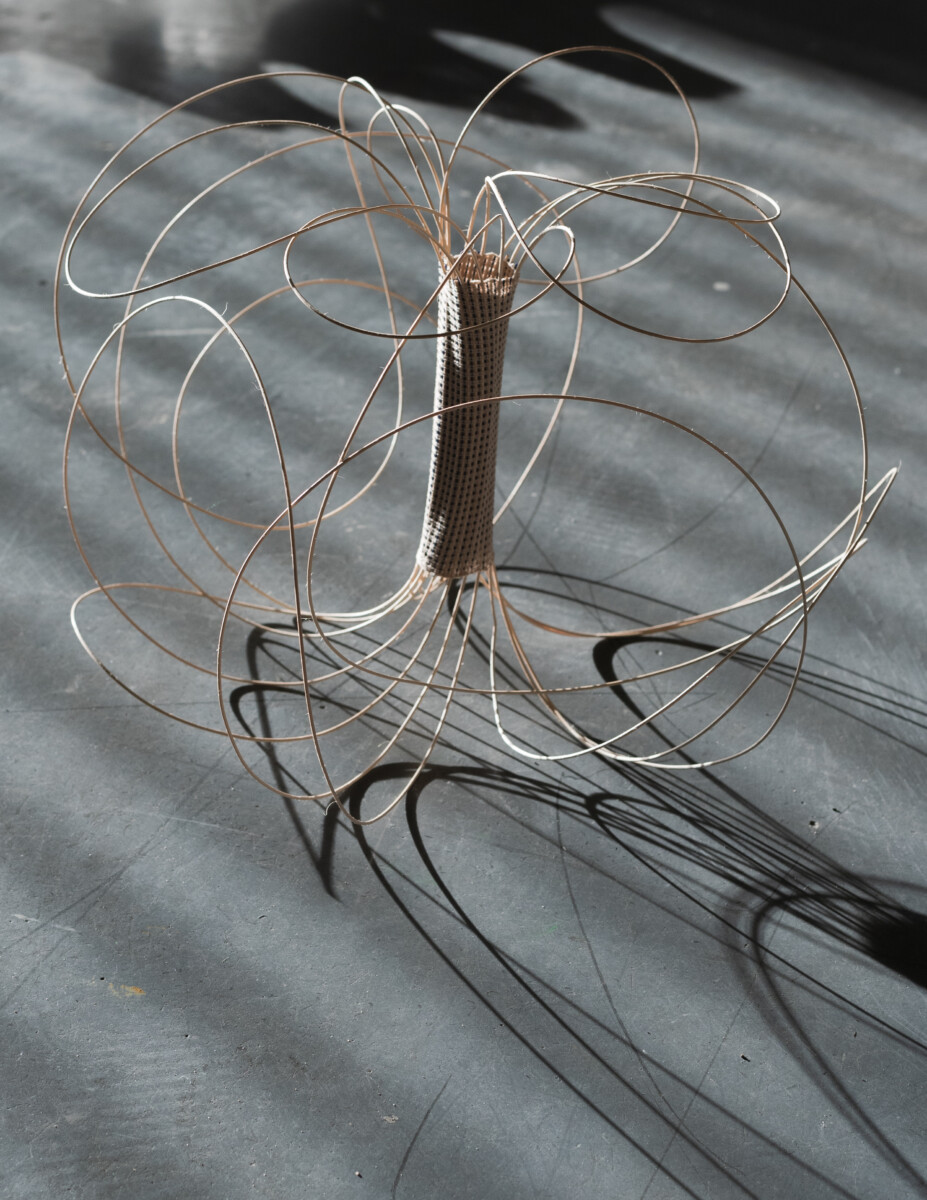
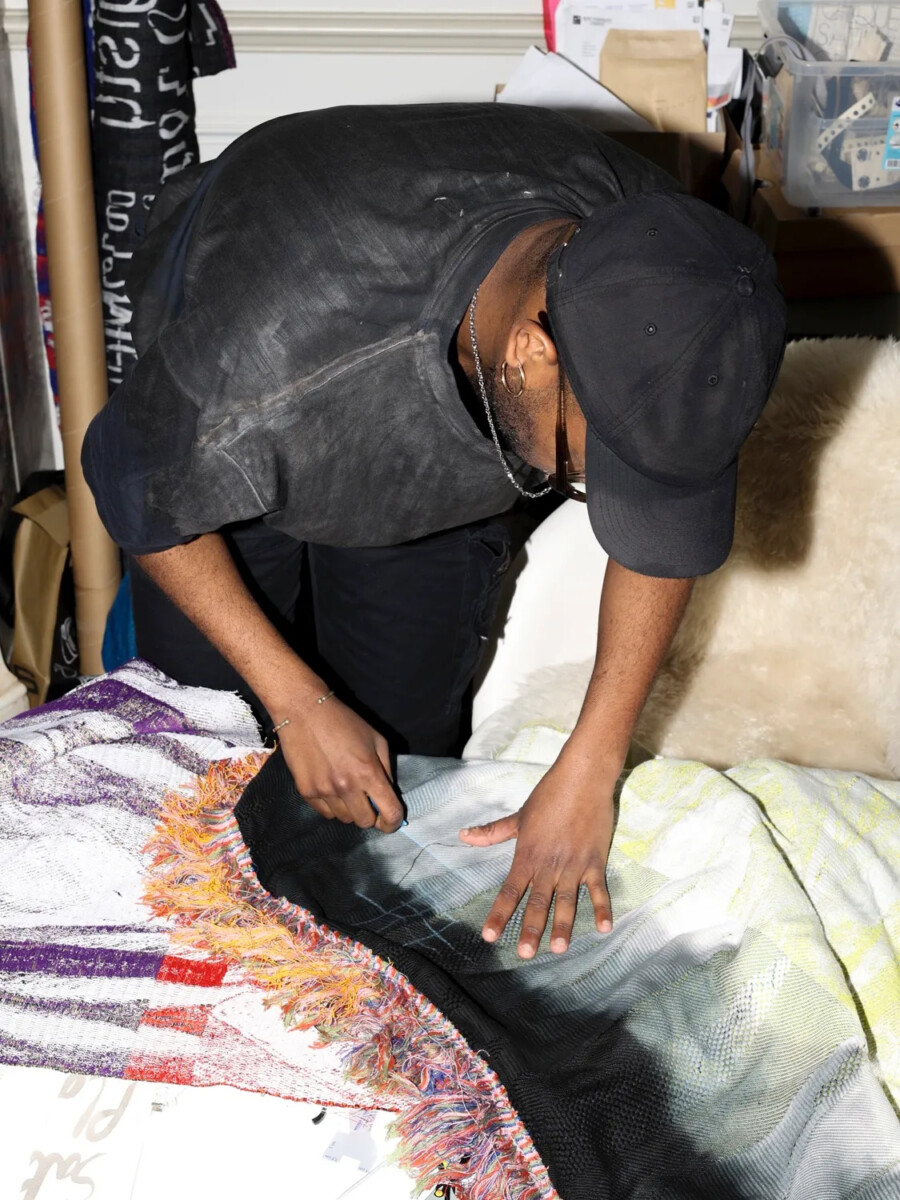
Research
Deep and felt knowledge of materials enables you to link functional properties to visual qualities. The tension between these aspects is a breeding ground for innovation. This knowledge is always integrated into your own artistic process where both tactile and visual qualities are central. An inquisitive and critically reflective attitude is a prerequisite for success, not only within the programme but also afterwards as a designer in the current working field. During the programme, the development of a critical, individual view is continuously encouraged through various assignments and artistic projects. The theoretical framework also contributes to the development of a reflective attitude towards historical and contemporary cultural evolutions and the positioning of one's own work in the world.
Cooperation
Collaborative projects with artists, designers and companies are part of the curriculum and make a relevant connection with the professional field. In doing so, we explore the different domains in which textiles exist and investigate the functional, collective, narrative,... possibilities within specific situations and working spheres. Parallel to teaching, the textile design teachers also all have their own practice from which they bring in relevant and diverse expertise. International internships, fair and company visits, guest lectures and competitions also bring the varied working field close by and support the formation of autonomous and innovative textile designers.
teachers
study programme
enrolment & tests
how do you register for the bachelor's degree?
see the dates and assignments for the test
how do you register for the master's degree?
see the dates and assignments for the test
If you want to apply for an academic bachelor's degree, you must first pass an artistic admission test. To enter the master's programme, you will take part in an orientation test. These are organised several times per academic year.
english master
In addition to a Dutch-language master, this study path also has a fully English-language counterpart. Every academic year, dozens of foreign students start in the English master's at KASK & Conservatorium.
There are no differences in curricula, competencies, learning outcomes or organization between the English-language programmes and their Dutch-language counterparts. Don’t hesitate to contact the study and learning track counsellors with your questions.
credits
- Atelier textile design, video: Manon De Sutter & Charles Dhondt
- Sofie Roterman, Embodied Knits
- Louise Dhondt, Graduation 2022, photo: Jordi Coppers







